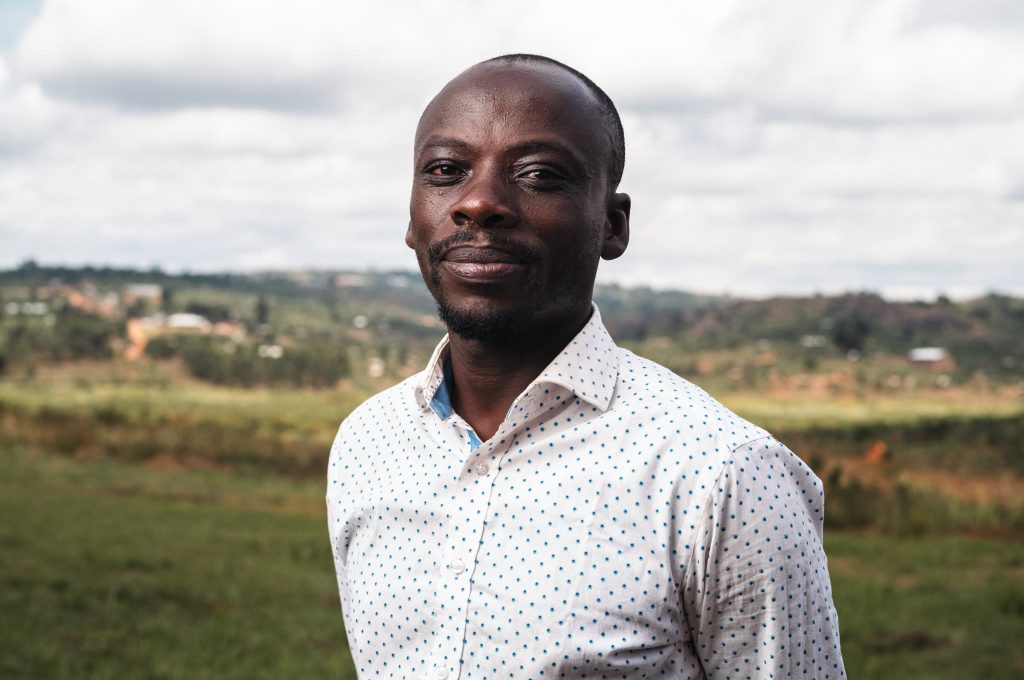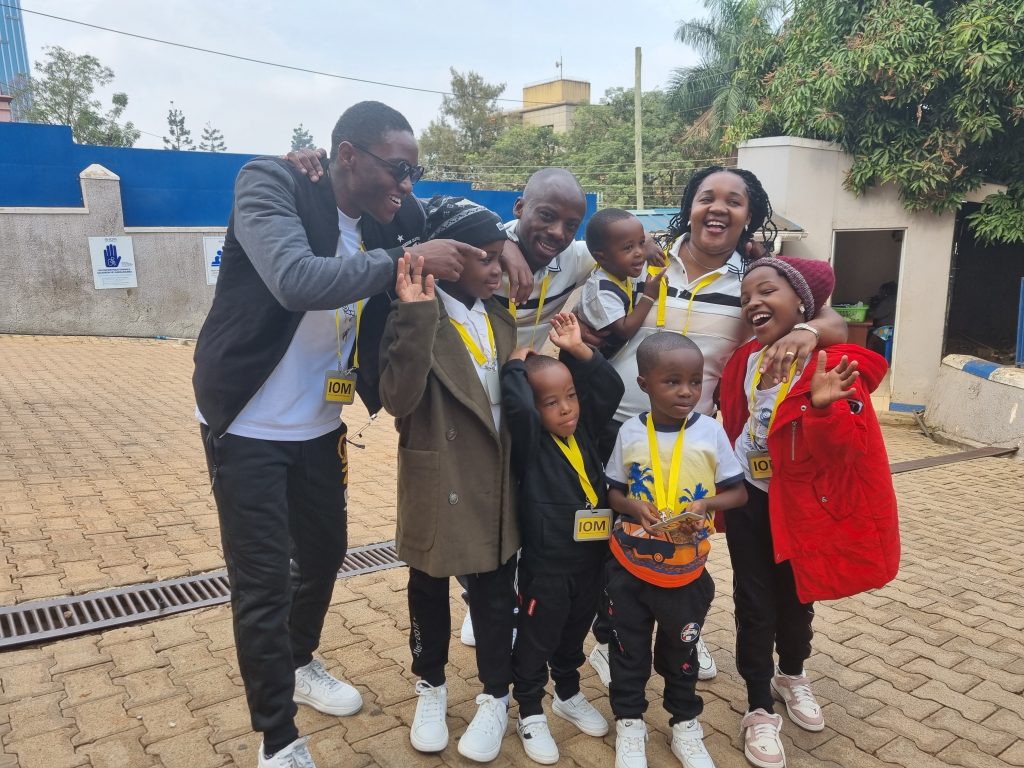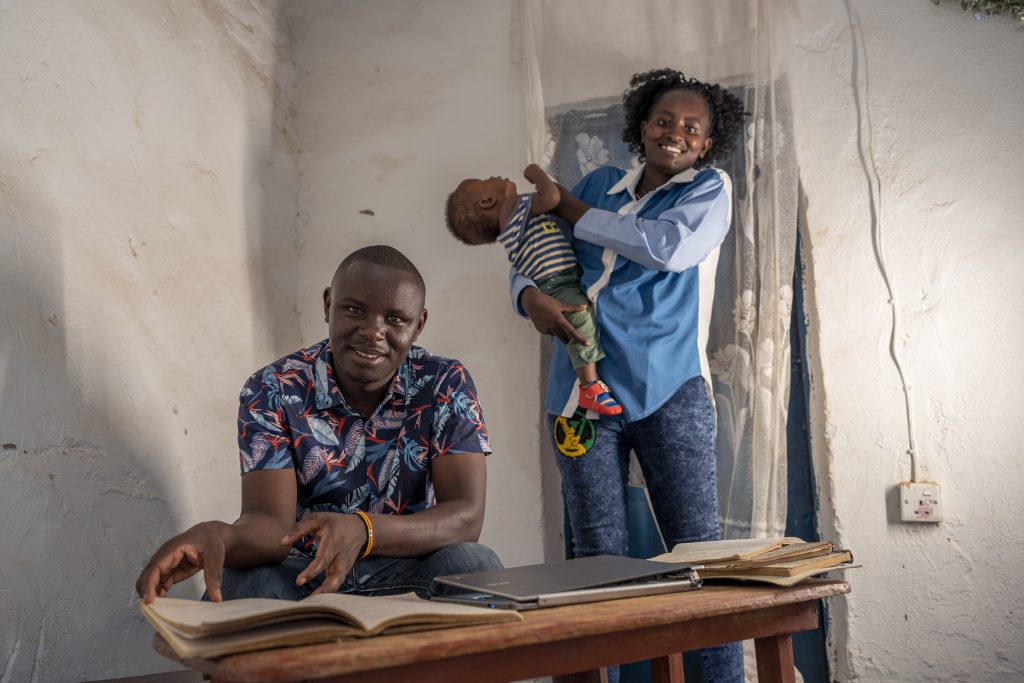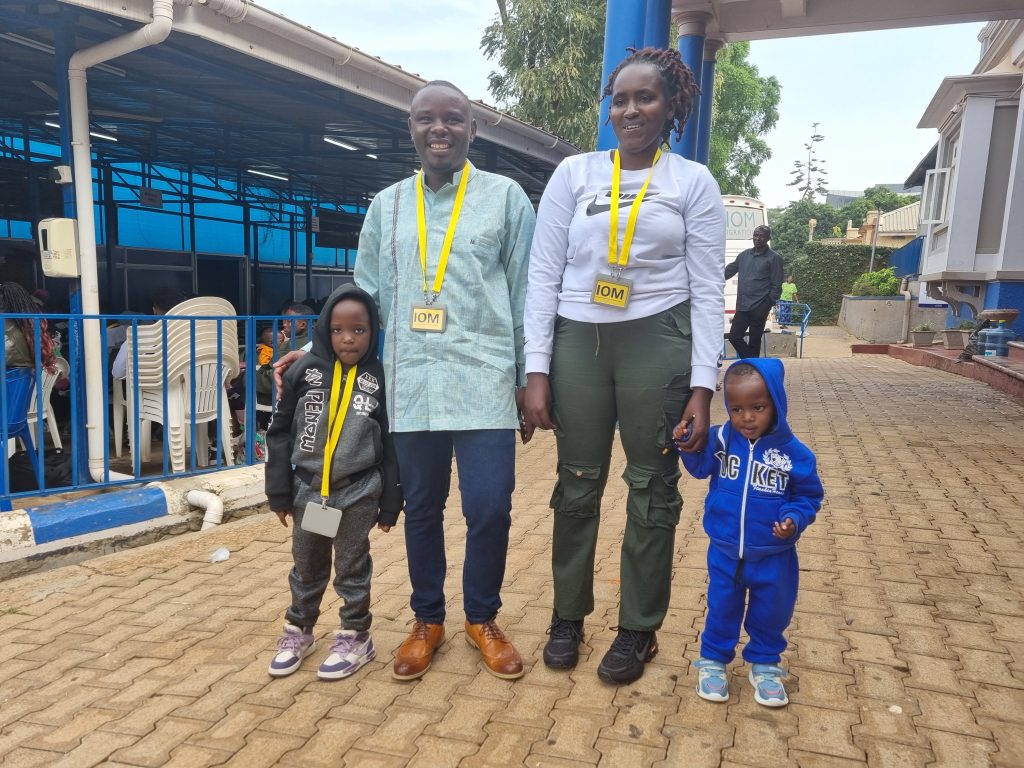Uganda to Canada – refugees bring care experience to new continents
Baderha Pascal Mujombo and Jean Berikiimas Manirakiza, both refugees with experience in medicine and care, have embarked on a new chapter of their lives in Canada with help from FCA and its partners. Both came to the country as refugees, due to conflict and insecurity in their countries of origin.
Through the Complementary Pathways programme, Finn Church Aid (FCA), UNHCR, and Talent Beyond Boundaries (TBB) supported the pair in securing job placements with the opportunity to relocate with their families as Permanent Residents in Canada.
Complementary Pathways are ways that a refugee can pursue work or study opportunities, reunite with family and apply for other visas just like any migrant, while being supported through their whole journey.
Through the labour mobility pathway, the programme identifies skilled refugees in Uganda, provides comprehensive support through Career Guidance and Counselling, and connects them with durable employment in third countries. Pascal and Jean, together with their families, have departed from Uganda and are now in Canada, where a new life awaits.
Pascal Mujombo: from Kyaka II to Canada
Pascal, a 40-year-old nurse, was forced to flee his home in the South Kivu region of the Democratic Republic of Congo (DRC) in 2017. The conflict that erupted near his home left him with no choice but to seek refuge in Uganda.
He has been living in Kyaka II refugee settlement with his wife and five children, the youngest just 2.5 years old.
Life in the settlement was far from easy, and despite his qualifications, Pascal faced significant barriers to practicing his profession.

“I got my medical training in DRC and worked there as a nurse for five years before fleeing to Uganda,” Pascal explains. “But here in Uganda, being a refugee means that even as a professional nurse, I can’t have a normal job. I haven’t been able to work as a nurse here, so I’ve been volunteering and providing nutritional counselling within the community.”
Pascal enrolled in the Complementary Pathways program, a rigorous process that took more than 1.5 years to complete. Throughout this time, he remained determined, knowing that the opportunity to move to Canada could change his life and that of his family.
“Getting the opportunity to go to Canada through the Complementary Pathways program will change my life,” he says. “My children will get the chance to attend good schools, and we’ll finally have enough to eat once I start earning a real salary.”
A long process was worth the wait
The process was not without its challenges. Pascal faced countless interviews and a long wait, but he never gave up. “It’s been a long process to get this far, and it’s challenged my patience,” he admits. “But it was worth the wait. I have a job waiting across the ocean, and I’ll be paid for that. My family and I will finally be safe.”
Pascal’s wife, is equally excited about the future. “I’m thrilled to be going to Canada,” she shares. “It’s a dream come true for our family. We know it will be different and far from what we know, but we believe everything will go well.”

In Canada, Pascal will work as an assisting nurse in an elderly care home, a job that aligns with his passion for patient care. “Being an assisting nurse includes tasks like taking care of patients’ personal hygiene, helping them get dressed, taking them out for fresh air, and ensuring they eat well and take their medication,” he explains. “I’m proud to be a professional, and the most important part of my job is making my patients feel taken care of.”
While Pascal looks forward to his new role, he is also planning for the future. “I hope to complement my studies in Canada at some point and eventually obtain my nurse’s permit,” he says. “I’m also hoping to make enough money to support my brothers who will continue living as refugees here in Uganda. Maybe one day, I’ll be able to help other refugees too.”
The journey ahead is filled with hope, but it also comes with a deep sense of responsibility. “Giving up was not an option for me,” Pascal says. “My advice to anyone dreaming of the same opportunity? You need to have patience. You’re competing for these jobs with others, and being a refugee doesn’t make you any less qualified or capable. Believe in yourself.”
Jean Manirakiza: from Nakivale to a new beginning
Jean Berikiimas Manirakiza’s journey began in Congo, where he was born, but conflict forced his family to flee to Burundi when he was just five years old. It was in Burundi that Jean grew up and completed his education, eventually earning a degree in general medicine.
“I studied at the School of Clinical Officers, Nursing, and Midwifery, and later earned my degree in general medicine,” Jean recalls. “After finishing my studies, I returned to Congo, but the war broke out again, and I had to flee to Uganda.”
Arriving in Uganda alone after losing his family in the conflict, Jean found refuge in Nakivale refugee settlement. In 2013, he began to rebuild his life when he married and started a family. He and his wife now have two children, a son and a daughter, who have grown up in the settlement.

Despite his qualifications and experience, Jean faced significant obstacles in finding employment.
“Even with my qualifications, I couldn’t get a job because I wasn’t able to obtain a work permit due to my studies being completed outside of Uganda,” he explains. “But I remained committed to my passion for medicine and volunteered with humanitarian agencies in Nakivale.”
Jean’s life took a turn for the better when he attended a career guidance session organised by FCA. There, he learned about the opportunities available through the Complementary Pathways program and applied to move to Canada. With the support of FCA, UNHCR, and TBB, Jean was selected for an employment opportunity in Canada as a Personal Support Worker.
“I’m very excited to be going to Canada to work,” Jean says with enthusiasm. “I’m happy to go to a place where I can work and live with my family for my whole life. It’s a blessing that I haven’t been separated from them.”
Not just a move to safety
Jean is optimistic about his future in Canada, where he plans to further his education and ensure his children have access to quality schooling. “My plans for the future include adding more to my education and ensuring my children attend good schools,” he shares. “This move is not just about finding safety; it’s about securing a future for my family.”
The cold climate of Canada, which might intimidate others, doesn’t worry Jean. “I was born in a cold place, so I believe I’ll be able to adjust,” he says.
“I’m not sad to leave Nakivale because I’ve spent a lot of time here. While I will miss it, I’m going to a better place.”
Jean’s family shares his excitement. “My wife couldn’t believe the news until we got all the travel documents and confirmed we were leaving,” Jean says. “I hope to meet nice people in Canada,” Jean adds. “This is a new beginning for us, and I’m ready to embrace it.”

FCA and partners work together to link refugees to jobs abroad
The successful relocation of Pascal and Jean to Canada is a results of collaborative efforts bewteen Finn Church Aid, UNHCR, and Talent Beyond Boundaries. These organisations work together to identify skilled refugees in Uganda and link them to employment opportunities in third countries. The employment pathways provided by these organisations offer extensive support to refugees, ensuring that they are well-prepared for their new lives in the third country
The support includes candidate outreach and information dissemination for current opportunities, identification for job opportunities on the TBB Talent Catalogue, and Career Guidance and Counselling to enable refugees achieve their professional goals. FCA also plays a crucial role in the pre-departure processing, including the acquisition of Conventional Travel Documents (CTDs), which many refugees often lack, visa processing, and pre-departure cultural orientation.
This comprehensive support system ensures that refugees like Pascal and Jean are not only able to secure employment but are also equipped to integrate successfully into their new communities.
Text: Linda Kabuzire
Main Photo: Hugh Rutherford
Read another story of a couple working their way from Uganda to New Zealand